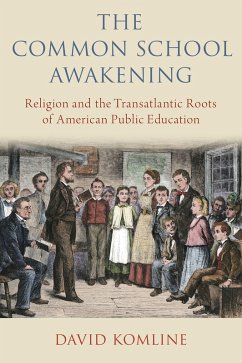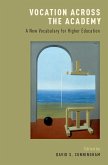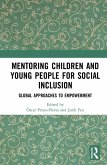A statue of Horace Mann, erected in front of the Boston State House in 1863, declares him the "Father of the American Public School System." For over a century and a half, most narratives about early American education have taken this epithet as the truth. As Mann looms over the Boston Common, so he has also loomed over discussions of early American schooling. Other scholarship has emphasized economic factors as the main reason for the emergence of public schools.
The Common School Awakening offers a new narrative about the rise of public schools in America that counters these conceptions. In this book, David Komline explains how a broad and distinctly American religious consensus emerged in the first half of the nineteenth century, allowing people from across the religious spectrum to cooperate in systematizing and professionalizing America's schools in an effort to Christianize the country. At the height of this movement, several states introduced state-sponsored teacher training colleges and concentrated government oversight of schools in offices such as the one held by Mann. Shortly thereafter, the religious consensus that had served as the foundation for this common school system disintegrated. But the system itself remained, the legacy of not just one man, but of a whole network of reformers who put into motion a transatlantic and transdenominational religious movement - the "Common School Awakening."
Dieser Download kann aus rechtlichen Gründen nur mit Rechnungsadresse in A, B, BG, CY, CZ, D, DK, EW, E, FIN, F, GR, HR, H, IRL, I, LT, L, LR, M, NL, PL, P, R, S, SLO, SK ausgeliefert werden.









